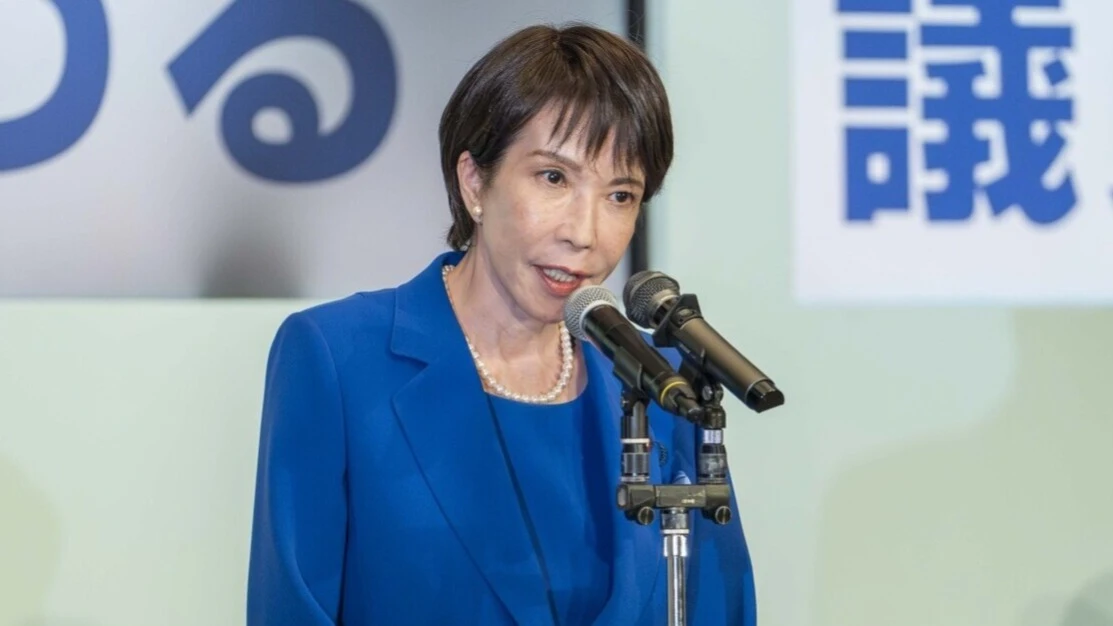Japan stocks soar 5%, yen weakens: election of ruling party chief surprised market
Unlike his predecessor, likely future Japanese Prime Minister Sanae Takaichi belongs to the conservative wing of the LDP

Japanese stocks rose sharply and the yen sagged on the morning of October 6. This was the market's reaction to the unexpected victory of Sanae Takaichi in the weekend election for the leadership of the ruling Liberal Democratic Party (LDP). Takaichi is known for her conservative views and may soon become the country's first female prime minister.
Details
The benchmark Nikkei 225 stock index rose more than 860 points (+1.9%) immediately after the opening of trading in Tokyo and continued to gain momentum: it rose more than 5% during the session and broke the 48,150-point mark for the first time. Japan's broader Topix index rose 3.5% and hit an intraday high. Futures on the Osaka exchange were up 4%.
The yen weakened to over 150 per dollar by midday for the first time in two months, having lost about 2% since the open. The Japanese currency also fell to a record low against the euro, breaking the previous low recorded in September.
What the analysts are saying
Sanae Takaichi's election victory came as a surprise to the market, which had been betting that Agriculture Minister Shinjiro Koizumi would become the new leader of the LDP - and the country's likely next prime minister, Nikkei Asia wrote, citing Masahiro Yamaguchi, chief market analyst at SMBC Trust Bank. "After her [Takaichi's] victory, investors rushed to put a course of expanding stimulus measures into the stock price," Yamaguchi explained. - "I think the stock market will cool down a bit as investors watch how Takaichi plans to deal with the opposition, but depending on the reaction of Western markets to news of her victory, stocks could rise further.
Srikanth Kale, senior quantitative strategist at Jefferies' Hong Kong unit, expects Takaichi's victory to favor Japanese equities in the medium term as "a regime of fiscal pumping and cheap money tends to be beneficial for the stock market." Corporate earnings could rise from stimulating domestic demand, and a weaker yen boosts profits for Japanese exporters, Kahle added.
What Takaichi is known for
Takaichi belongs to the conservative wing of the LDP, unlike her predecessor Shigeru Ishiba. Ishiba resigned in early September.
The first female head of the LDP is considered a follower of Prime Minister Shinzo Abe, who was assassinated in 2022, and favors soft fiscal and monetary policies. In her victory speech, the 64-year-old politician promised to abolish a "temporary" gasoline tax and support wage increases, Nikkei Asia reported. Takaichi also said her priority is to tackle rising living costs, and analysts expect her to oppose interest rate hikes, the publication noted.
Takaichi received 185 votes in the second round, while her rival, 44-year-old Shinjiro Koizumi, received 156. Japan's parliament, which will confirm the new prime minister, is scheduled to meet in mid-October. Normally this is a formality, but the LDP has lost its absolute majority in both chambers, so the ruling party will need the support of coalition partners to approve the candidate, BBC notes.
This article was AI-translated and verified by a human editor
